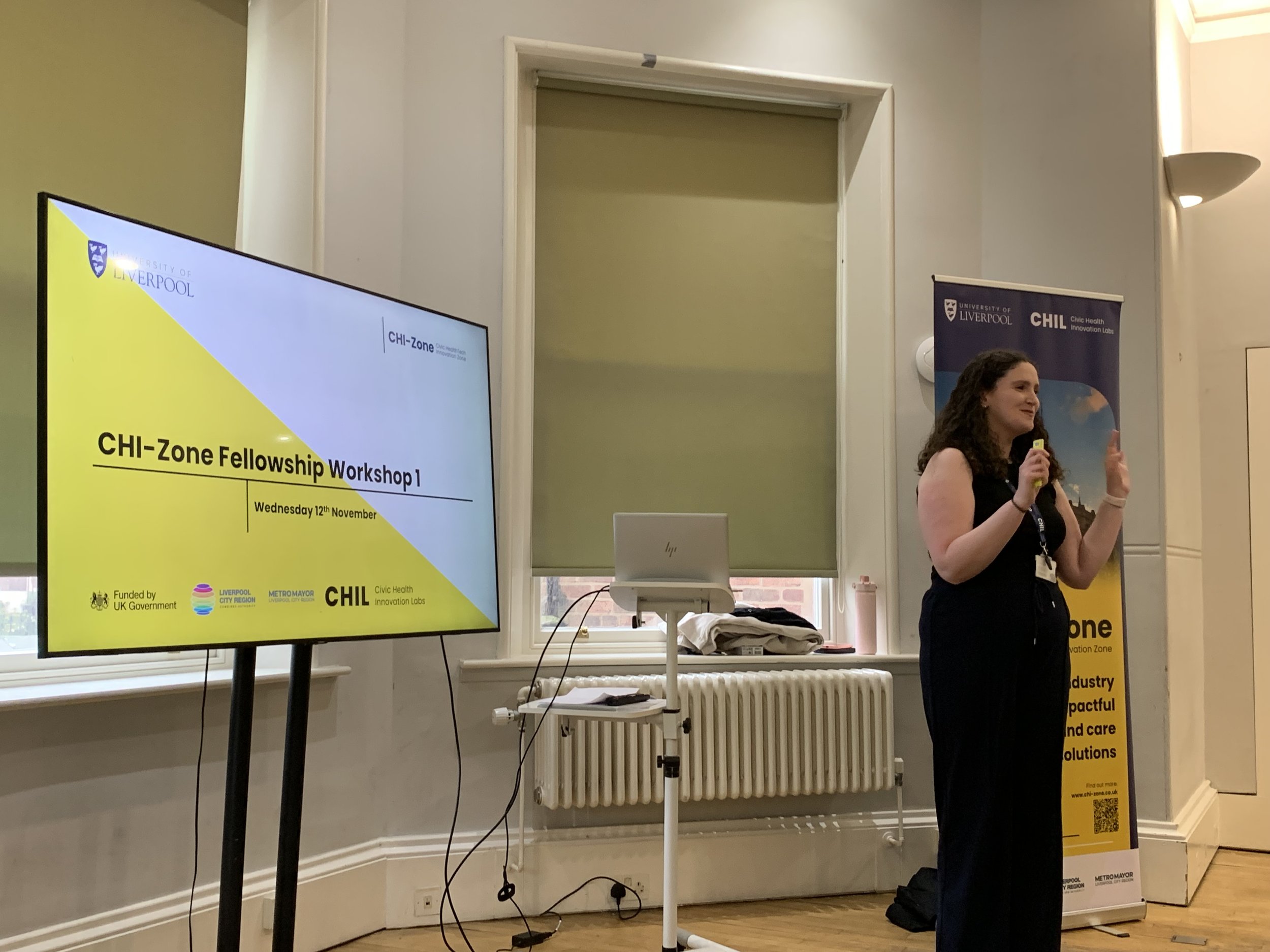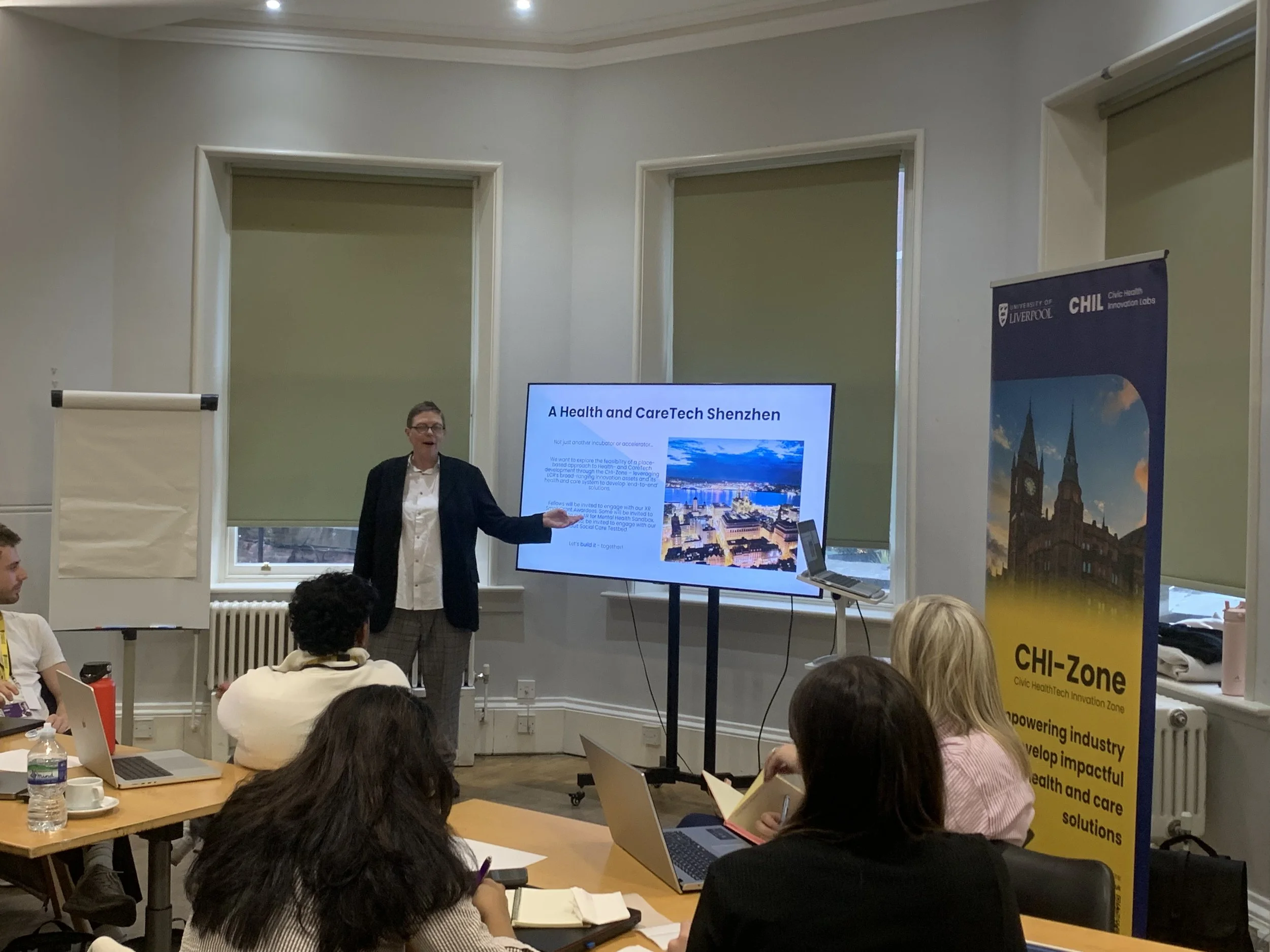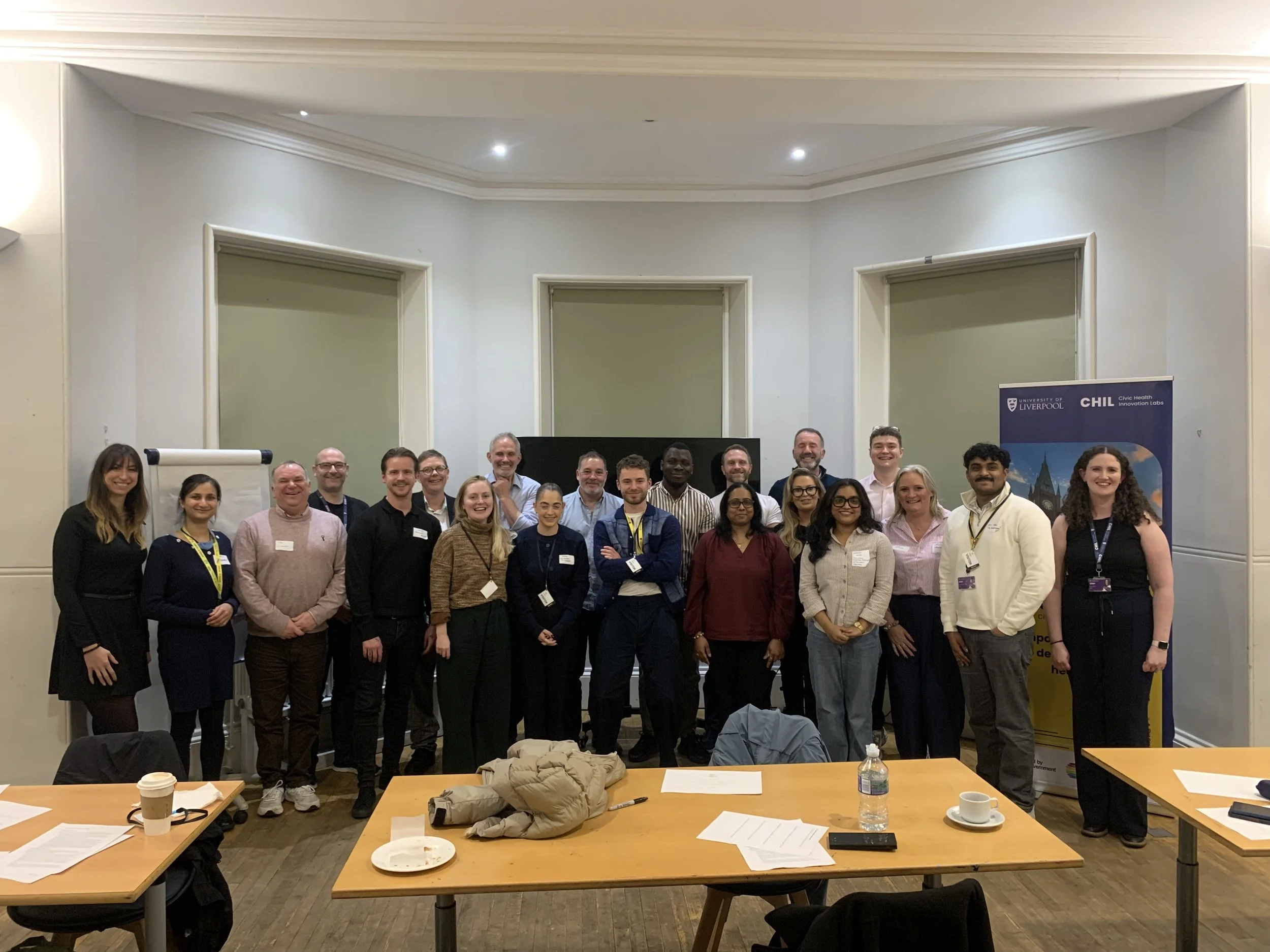Launching the CHI-Zone Fellowship: Bringing People Together to Rethink Mental Health Futures
Last week marked the first session of our inaugural CHI-Zone Fellowship, a first-of-its-kind programme that gathers innovators from across sectors into one room, sparking fresh thinking and bold new approaches in health and care, with this years’ theme focusing on Mental Health Futures. The group came together with one aim: to explore how collaboration and creativity can shape the future of mental health care in the Liverpool City Region.
After months in the making, we’re delighted to welcome this year’s cohort of Fellows — a group whose expertise spans academia, clinical practice, the third sector, SMEs, tech founders, data science and beyond. It’s been truly inspiring getting to know the Fellows, hearing about their skills and experience, as well as their innovative, visionary thinking and deep motivation to improve the health of people across the Liverpool City Region.
It was incredibly exciting to kick off the Fellowship with a deep dive into new opportunities for innovation in mental health. The diverse perspectives, skills, and experiences in the room created a unique opportunity to challenge traditional thinking and foster an inspiring environment for new ideas to emerge.
The session opened with a conversation about the kind of future we are heading towards, framed through the ideas of “disrupting a dystopian future” or “making a utopian future a reality”. Dr Annemarie Naylor, Director of Innovation at the University of Liverpool and the driving force behind the Fellowship concept, encouraged Fellows to think honestly about what innovation in health could look like in Liverpool and across the UK. Dr Naylor’s inspiration for the Fellowship draws on Steven Johnson’s Where Good Ideas Come From, which argues that breakthroughs often appear when people with different experiences and skills collide. That principle sits at the heart of the programme, and it was clear from the outset that the mix of voices in the room will be one of its biggest strengths.
To set the tone for the weeks ahead, our Fellows took part in the “10 Faces of Innovation” exercise, based on Tom Kelley’s work. The activity helped everyone understand their own innovation styles, from experimenters and caregivers to cross-pollinators, giving the group a sense of the varied approaches they bring to shared problems.
The session also picked up on findings from Professor Matt Ashton’s recent “State of Health in the City: Liverpool 2040” report, which warns that depression rates in Liverpool are expected to double in the coming years. It is a stark reminder that prevention and place-based approaches will need far more attention if the city is to shift the trend.
Professor Dan Joyce led an open discussion on the barriers that often hold back prevention work and civic technology, including the difference between highly regulated medical environments and the more flexible wellbeing space. The conversation circled around the need for funding models that support early intervention, long-term thinking and solutions that work for people at every age.
I am so pleased to have launched the first of many Fellowship sessions. The group will now meet every two weeks, through a programme of commercial education, building on these early conversations and shaping fresh ideas that support better mental health across the Liverpool City Region.
Stay up-to-date with the latest CHI-Zone news on our LinkedIn.




